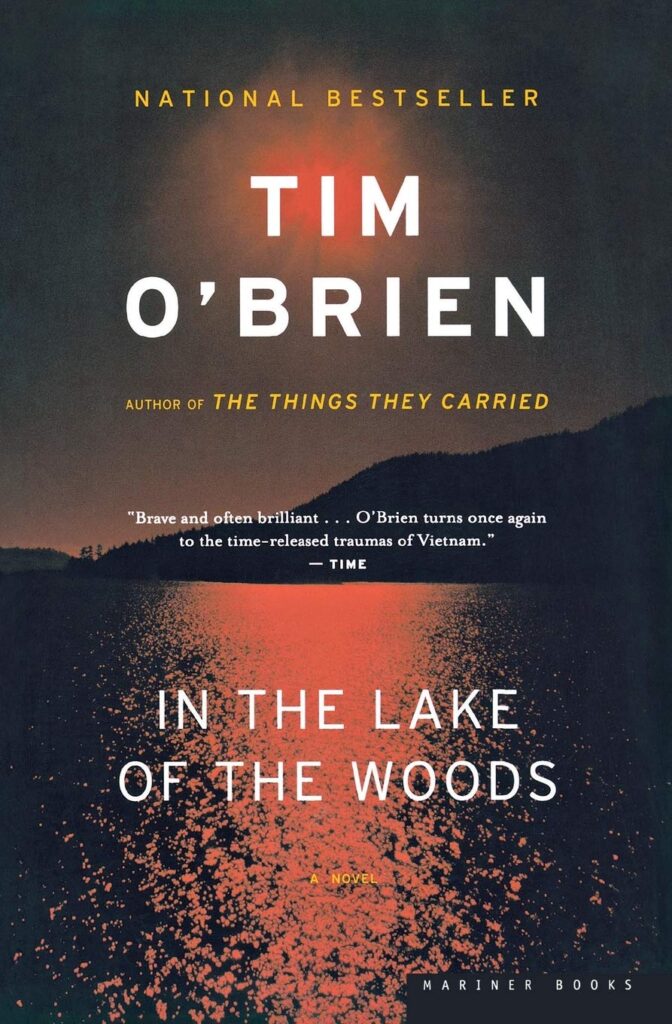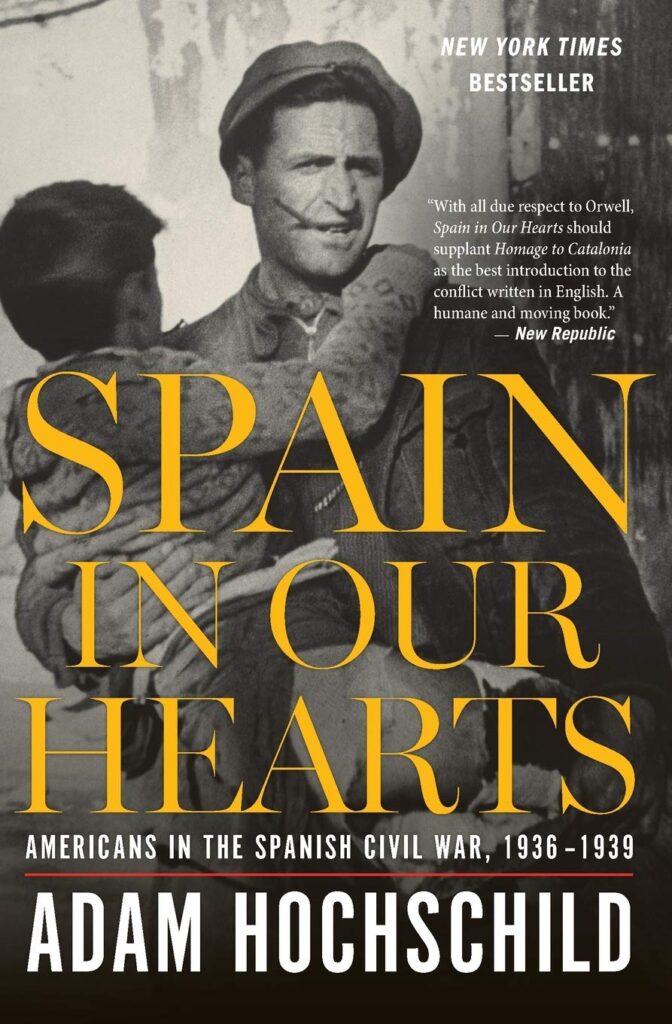Congratulations, you’ve found a weird work-around.
Hidden Text.
Travel__________________________Videos__________________________Books
Book Recommendations
My Favorites
In the Lake of The Woods – Tim O’Brien
“My heart tells me to stop right here, to offer quiet benediction and call it the end. But the truth won’t allow it. Because there is no end, happy or otherwise. Nothing is fixed, nothing solved. The facts, such as they are, finally spin off into the void of things missing, the inconclusiveness of us. Who are we? Where do we go? The ambiguity may be dissatisfying, even irritating, but this is a love story. There is no tidiness. Blame it on the human heart. One way or another, it seems, we all perform vanishing tricks, effacing history, locking up our lives and slipping day by day into the graying shadows. Our whereabouts are uncertain. All secrets lead to the dark, and beyond the dark there is only maybe.” (p.445)
In the Lake of the Woods isn’t one of Tim O’Brien’s better rated books; it also isn’t among his worst. It stands in the middle, neither widely acclaimed nor often panned. Despite all this, it’s far and away my favorite O’Brien novel. The how is a bit hard to explain.

Norwegian Wood – Haruki Murakami
“I lived through the following spring, at eighteen, with that knot of air in my chest, but I struggled all the while against becoming serious. Becoming serious was not the same thing as approaching truth, I sensed, however vaguely. But death was a fact, a serious fact, no matter how you looked at it. Stuck inside this suffocating contradiction, I went on endlessly spinning in circles. Those were strange days, now that I look back at them. In the midst of life, everything revolved around death.” (p.25)
I first read Norwegian Wood when I was seventeen, about to graduate, and very uncertain about my life. Then I read it when I was nineteen, moving towns for school. And when I was twenty-one, feeling scared about the changes I knew were coming, I found the old copy and read it all in a single sitting. Every time I come back to this book, I’m surprised with how much new meaning I can excavate and relate to. Norwegian Wood is like a good friend; no matter how much time passes between our interactions, each re-connection is instant and comforting. Like a good friend, I can’t speak highly enough of it.

Spain in Our Hearts – Adam Hochschild
“Men of my generation have had Spain in our hearts. It was there that they learned…that one can be right and yet be beaten, that force can vanquish spirit and that there are times when courage is not rewarded.” -Albert Camus
I would describe myself as a World War 2 buff. When I was a child, I watched History Channel documentaries over and over until I had them memorized. As an adult, the process has been more difficult—it’s a process of learning new things and unlearning pop history. Anyone with even a cursory education of the war is familiar with the experience of the white, American fighting man between ’41 and ’45. But there are also good books that cover the many, many forgotten aspects of the war (The Good War, Race and Power in the Pacific, Forgotten: The Story of D-Day’s Black Heroes, Between Tears and Laughter, A Woman in Berlin, Grossman’s Stalingrad, to name a few). One of my favorite covers the war that would become WW2: The Spanish Civil War.
Picking a favorite Hochschild book is like picking a favorite child. You can, but it’s hard. I could laud Spain in Our Hearts for its careful research, for its respect and tenderness with history, for its engaging writing—but the same is true of all of Hochschild’s books. So I’ll just say this: don’t read this book if you’re worried about your blood pressure. The heroic battles of WW2 tend to overshadow the pre-war years and it’s all too easy to forget the allied countries turning a blind eye (fatefully, in the case of Texaco’s unrestricted support of the Francoist forces) to fascist encroachment until they themselves were attacked. The heroes of Spain would be persecuted by not only the fascists, but even by their own governments later, labeled “pre-mature fascists.” There are times when courage is not rewarded, and this is exactly why this history needs to be remembered.

The Funeral Party – Ludmila Ulitskaya
“But none could have imagined that what was happening in that far-off place which they had all but erased from their lives would be so painful to them now. It turned out that this country sat in their souls, their guts, and that whatever they thought about it—and they all thought different things—their links with it were unbreakable. It was like some chemical reaction in the blood, something nauseating, bitter and terrible.” (p.90)
Paradoxically, the concept of being an American seemed abstract to me until I was no longer in America. Removed from familiar mores, I understand what ‘American’ was by virtue of living in the absence of it. The greater challenge for me, as a student of Russia, was to understand Russian-ness in this same sense. It’s an on-going learning process.
Perhaps the closest I’ve come to truly understanding is reading The Funeral Party. Ludmila Ulitskaya’s novel follows a group of Russian expats through the fall of 1991. The friend that holds them all together is dying. The August coup is happening in Moscow. The sureness of their American lives is shaken; what that means for everyone is different. The Funeral Party is in equal measure nuanced, incisive, and touching. It deserves high consideration.

Master and Margarita – Mikhail Bulgakov
“I’m sorry, but I don’t believe you,” said Woland. “You can’t have done that. Manuscripts don’t burn.” (p.149)
“Is that vodka?” Margarita asked weakly. The cat jumped up from his chair in indignation. “Pardon me, your majesty,” he squeaked. “Do you really think I would give vodka to a lady? This is pure alcohol!” (p.354)
In Master and Margarita, the Devil comes to Moscow to spread chaos. In AD 33 Procurator Pontius Pilate finds himself strangely drawn to Yeshua Ha-Nozri, a wise man slated for execution who has the uncanny ability to see right through the procurator. A man known as Master and a woman known as Margarita fall in love, fall in a deep, tragic love. Yes, all three of these story threads are connected.
Master and Margarita is funny, is absurd, is introspective, is tragically compelling, is a dark satire on the USSR and religion, is, is, is. It’s many things and refuses easy labeling. Its most famous line: “Manuscripts don’t burn” rings true to the life of the story: Bulgakov burned the original draft of the novel in 1930, then kept writing and rewriting until his death in 1940. Despite the best attempts of the Soviet authorities, self-published versions of the book emerged and floated around for the next 26 years until an official copy was finally published. To be entirely honest, nothing I could say about the novel that would do it justice. Just read it.

Other Novels I Enjoy
Between Tears and Laughter – Lin Yutang
The Conquest of Bread – Pyotr Kropotkin
The Good War – Studs Terkel
Drug War Capitalism – Dawn Paley
Europe Central – William T. Vollman
Franny and Zooey – J.D. Salinger
The History of Mary Prince, a West Indian Slave – Mary Prince
How We Get Free: Black Feminism and the Combahee River Collective – Keeanga-Yamahtta Taylor
It Can’t Happen Here – Sinclair Lewis
John Brown – W.E.B. Du Bois
Moscow to the End of the Line – (also published as Moscow-Petushki and Moscow Circles) Venedikt Erofeev
Reading Lolita in Tehran – Azar Nafisi
Right out of California – Kathryn Olmstead
The Ugly American – William Lederer & Eugene Burdick